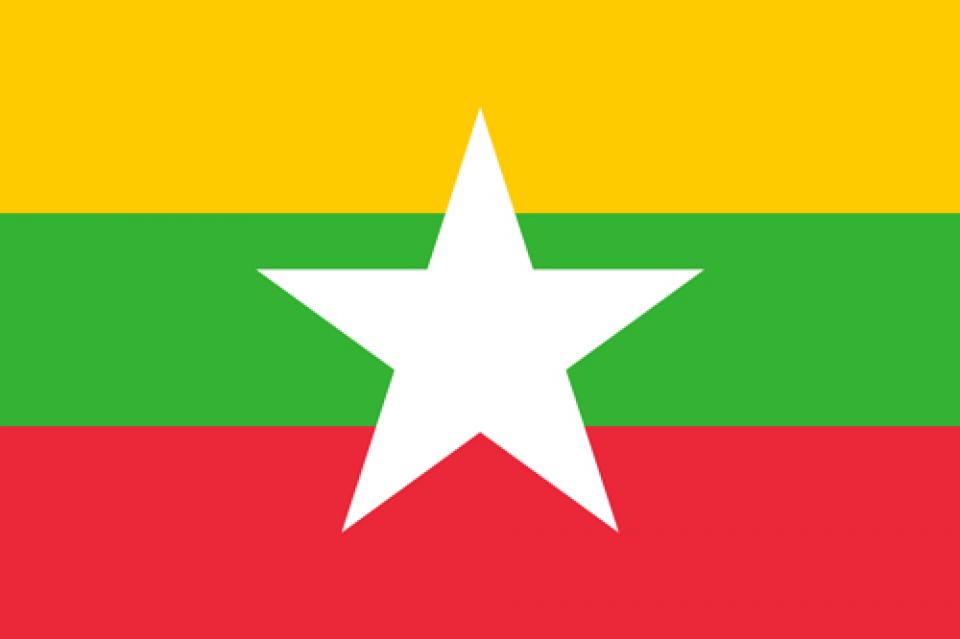Jonathan Millar has spent time in Myanmar, talking to Australian and New Zealand firms already engaged there, and filed this report on the opportunities that await.
Since opening its doors in 2011, Myanmar has joined Southeast Asia’s journey to economic prosperity. Structural reform and unprecedented levels of FDI have driven growth, with foreign investment being led by Singapore, China and Thailand.
Australian and New Zealand companies have been among the pioneering few who decided to enter Myanmar and the focus of this article is to explore the environment, risks and experiences of those companies investing in Myanmar.
Myanmar’s growth is expected to continue in the face of the slowing Chinese economy, with The World Bank forecasting real GDP growth of 8.5 percent in 2015/16.

This growth will depend on the November elections and the transition to democracy, as well as continued reform that has slowed ahead of the elections.
With commodities dominating export revenue and extractive industries driving much of the FDI, commodity performance will also contribute to the level of investment income and growth in the medium-term for Myanmar.
There are many risks in doing business in an emerging market and Myanmar is no different. Some of the difficulties experienced by Aussie and Kiwi firms include:
- Corruption – although reportedly widespread only one of the interviewed companies encountered a problem with corruption. It reported the failure to win an important permit due to competitors being better connected to government officials. Government influence was observable when approaching companies for an interview. Some were reluctant to talk about the government and one declined an interview due to fears of repercussions on a pending government application. This problem is not exclusive to Myanmar and is present in much of Asia.
- The widely publicised skill shortage in Myanmar has two facets, not only is it difficult to find employees to fill roles but also difficult to find suitable business partners. Many businesses enter Myanmar as a joint venture and report difficulties in finding suitable partners.
- The military in Myanmar, like in most Southeast Asian countries, maintains an influence and is funded through businesses they own, as well as by government. International companies, especially those with ties to the US, should know to whom their spending is going and ensure the military is not the benefactor. This can be difficult to determine and time consuming, as they own many businesses through Myanmar Economic Holdings Limited (MEHL) and the Myanmar Economic Corporation (MEC).
- The financial system in Myanmar is the least developed in Asia with no functioning capital markets, a very small insurance market and a banking system dominated by state owned institutions. Less than ten percent of Myanmar people have a bank account and the economy mostly runs on cash. Businesses expressed their frustration over restrictions on the international movement of capital, obtaining bank guarantees, opening bank accounts and the general lack of expertise within the banking industry.
- Transport infrastructure was also frustrating for most companies. Simple tasks like getting to a meeting can take two hours and really waste your day. Moving around the country can be challenging in its own right.
Market opportunities
Many industries are in the infancy stage in Myanmar. Western multinationals are hesitating on investing in Myanmar due to fears of reinstated sanctions, ambiguous ‘blacklisted’ businesses and the general difficulty of dealing with Myanmar people.
This has made Myanmar a ‘small business’ market, something Australia and New Zealand have always specialized in. Small companies can enter the market as a first mover as big corporate giants are still deliberating on the due diligence and compliance risk.
The focus of foreign investment has largely been primary industries such as power and oil and gas, as well as labour intensive industries like garment manufacturing.

These industries are seeing continued investment and a growing number of firms operating in the market. The two fastest growing industries in the year to date are Oil & Gas and Manufacturing with company registrations growing by 31 percent and 42 percent respectively.
A garment manufacturer who recently entered Myanmar told me that the real cost of labour in Myanmar is still cheaper than in neighboring manufacturing hub Bangladesh.
Telecommunications saw large investment early but there still remain opportunities in the sector with the government tendering a 4th carrier license. One telecom-linked company I spoke with said Average Revenue Per Unit had far exceeded estimates, and speculated that organizations like The World Bank ‘underestimate the amount of cash stuffed under mattresses’.
Farming and agriculture also need attention. Land productivity is low and with a growing middle-class, dairy consumption is expected to double in the next eight years. A modern dairy industry is practically non-existent, highlighting the need for wider education and investment.
One industry where both Australian and New Zealand companies have expertise in is tourism. Tourist arrivals in Myanmar have grown by one million annually since 2012, with 4.5 million visitors expected in 2015. There are currently few visible tourist operators, with providers mostly small or informal businesses.
The Myanmar government frequently holds tenders for international firms. Currently tenders include the development of a central railway station complex in Yangon; joint venture opportunities for an LPG project, the sale of export timber, and many engineering and infrastructure projects.
Oil and minerals
There are government and private initiatives in Myanmar around projects in hydro-electricity, oil & gas, and mining. Myanmar has significant natural resources including huge hydropower potential, large reserves of metals, precious gems, natural gas and offshore oil fields.
However, the country still uses manual and archaic methods to extract oil and minerals from the ground – many are harmful to the environment. There is an opportunity for responsible companies to operate in these sectors and gain local support towards such projects.
One Australian mining expert I spoke with said, “There is an opportunity here for responsible mining companies who have learnt from their mistakes in places like Australia and Papa New Guinea, to operate in conjunction with the local populations.”
One of the largest hurdles keeping these industries from booming is inadequate property law and industry regulation.
A local partner adds value
The importance of a local partner was a resounding theme for all companies I interviewed.
If your business operates in one of the restricted industries the Foreign Investment Law requires you to establish your Myanmar operations as a JV with a Myanmar citizen.
Respondents emphasized the need for thorough research to look for a partner who can really add value, rather than simply legitimize your operations.
Even without a legal requirement all companies said a local partner was crucial, because on-the-ground experience was paramount and having a citizen on your side often made bureaucratic processes much faster.
The legal system in Myanmar, like Australia and New Zealand, is rooted in English colonial law but operates differently today. Legislation can be enacted quickly and be easily overlooked. It is common to only realise a laws existence when you are caught out.
Furthermore, commercial law suffers from ambiguity or lax enforcement. This makes it difficult for foreigners to operate a business alone.
A New Zealand entrepreneur explains that “It’s not an easy task to establish a business in Myanmar. It’s very important to get proper advice from the locals who know up to date commercial regulations”.
In the absence of regulation many companies choose to adhere to Australian or New Zealand best practices.
A physical presence is key
International media coverage means many people come and go in Myanmar, making businesses and the government wary of foreign companies purporting to have an interest in the country. This, along with an antiquated business culture, means a physical presence is key if you’re a serious investor.
When experiencing problems with government departments it is often necessary to travel to the source of the problem personally. This level of personal interaction makes having a physical presence essential to accomplish things on time in Myanmar.
Similarly, when dealing with potential business partners, face-to-face interaction is key. If you’re never available during the weekend for a drink or a round of golf (because you’ve returned to the comfort of Singapore or Bangkok) most Myanmar business people will think you’re a tourist and are not interested in doing business there.
For Australians and New Zealanders entering Myanmar the most important advice given was to be patient. This goes for long-term success as well as the day-to-day running of your business. The bureaucracy, rudimentary infrastructure and relaxed culture make business here a lot slower than at home.
Most of the business people I met came here with a long-term plan and spent their first one to two years building a base, establishing relationships, and gathering customers. They encourage prospective investors to treat Myanmar like any other investment. You still have risk-reward decisions to make; you just might add five or so percentage points to the risk when compared with other places in Asia. The fact is you’re much more likely to get the rewards here than anywhere else.
Kiwis well-positioned
All the people I met enjoyed living in Myanmar. Most spoke of the speed of development, level of excitement, and chaos, as thrilling compared with the calmness and security they felt at home. The easy going nature of Kiwis makes them well equipped for this environment and will find the change in culture an easy one.
Many of the problems in Myanmar are simply barriers to entry and once you overcome them it is a land of opportunity. As one engineering entrepreneur I spoke with put it: “If you are here now you’re probably too early, but if you aren’t here now you’re probably too late.”





